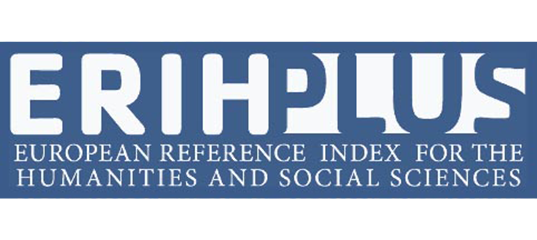Correlation between Fuel Price variations, Household Income and Employment in the province of Manabí
DOI:
https://doi.org/10.46480/esj.9.2.239Keywords:
Fuel prices, Household income, Employment, Unemployment, Correlation, Manabi, ENEMDUAbstract
Context: This study examines the relationship between fuel price variations and the socioeconomic conditions of households in the province of Manabí during 2024. The main objective was to analyze the potential correlation between the monthly behavior of key fuels (Diesel, Ecopais, Extra, and Super) and critical variables such as average labor income and employment structure. Methodology: A time-series analysis of real fuel prices and consumer price index (CPI) data was conducted. In addition, microdata from the National Employment, Unemployment, and Underemployment Survey (ENEMDU) were processed and refined, specifically filtered for the province of Manabí. Results: The findings reveal significant monthly fluctuations in fuel prices, with particular emphasis on Super gasoline. A progressive decline in average income was observed as prices increased, with Ecopais showing the strongest negative correlation with income (-0.49). Moreover, a negative correlation between income and underemployment was identified, as well as a positive relationship between income and adequate employment. Conclusions: Although the correlations are not highly intense, their consistency supports the claim that variations in fuel prices produce measurable effects on the household economy of Manabí. These results provide valuable evidence for the design of public policies aimed at mitigating the impact of energy price fluctuations on the population.
Downloads
References
Alexander & Sarango, M. H. (2021). Efecto de la Eliminación del Subsidio a los combustibles y el impacto en los precios de los tuberculos y raices en el mercado de Ambato EP-MA, en Ecuador. Compendium, 24 (47).
Alvarado, E. J. R., Guevara, R. M. L., Jaen, M. P. F., Pinargote, B. A. R., & Mantuano, J. A. C. (2025). La importancia del consumo energético en el desarrollo económico de Ecuador: The importance of energy consumption in the economic development of Ecuador. LATAM Revista Latinoamericana de Ciencias Sociales y Humanidades, 6 (2), 877-892. https://doi.org/10.56712/latam.v6i2.3671 DOI: https://doi.org/10.56712/latam.v6i2.3671
Becerra-Sarmiento, M., Valencia-Gonzalez, E., & Revelo-Oña, E. (2021). Análisis del desempleo durante la pandemia COVID-19 y el impacto en diferentes sectores económicos del Ecuador. 593 Digital Publisher CEIT, 6 (3), 442-451. https://doi.org/10.33386/593dp.2021.3.454 DOI: https://doi.org/10.33386/593dp.2021.3.454
Celi, D., Franco, E., Poma, N., Abad, S. V., & Saca, Y. (2022, septiembre). Incidencia del aumento en el precio de combustible en la economía Lojana [Accessed via ResearchGate]. https://doi.org/10.13140/RG.2.2.15101.64486
CEPAL. (2021). Subsidios a los combustibles fósiles en América Latina y el Caribe: evolución, impacto y desafíos. Comisión Económica para América Latina y el Caribe.
Corral Naveda, A. (2022). Telecommuting as a Sustainable Transportation Measure in Ecuador. Enfoque UTE, 13 (1), 23-38. https://doi.org/10.29019/enfoqueute.786 Finanzas, M. D. E. Y. (2022). Informe sobre política fiscal y subsidios energéticos [Quito, Ecuador]. DOI: https://doi.org/10.29019/enfoqueute.786
INEC. (2024). Boletín técnico del Índice de Precios al Consumidor (IPC) y Encuesta Nacional de Empleo, Desempleo y Subempleo (ENEMDU) [Quito, Ecuador].
INEC. (2025a, marzo). ENEMDU Anual [Online; accessed 2025-03-01]. https://www.ecuadorencifras. gob.ec/enemdu-anual/
INEC. (2025b, abril). Índice de Precios al Consumidor [Online; accessed 2025-04-01]. https://www.ecuadorencifras.gob.ec/indice-de-precios-al-consumidor/
Maggie, R., Willian, R., & Luis, P. (2025). Importaciones de diesel y su incidencia en el crecimiento economico del Ecuador (2004 – 2024) [Paginacin exacta por confirmar; p.18 se infiere como inicio del articulo. ISSN-L: 0798-1015.]. Revista Espacios, 46 (02), 18. https://www.revistaespacios.com/a25v46n02/25460218.html DOI: https://doi.org/10.48082/espacios-a25v46n02p18
Montenegro-Casa, C., & Ramírez-Álvarez, J. (2024). Fuel Subsidies in Ecuador: A Computable General Equilibrium Model for Targeting Evaluation. Latin American Research Review. https://doi.org/10.1017/lar.2024.38 DOI: https://doi.org/10.1017/lar.2024.38
Mundial, B. (2020). Subsidios energéticos en América Latina: impacto y reformas. World Bank Group.
PetroEcuador. (2025, abril). Histórico de precios a nivel de terminal – EP PETROECUADOR [Online; accessed 2025-04-01]. https://www.eppetroecuador.ec/?p=20421
Sánchez, A., & Jiménez, R. (2019). Efectos distributivos de los subsidios a los combustibles en Ecuador. Revista de Economía Aplicada, 27 (2), 89-110.
Downloads
Published
Issue
Section
License
Copyright (c) 2025 MARIA JOSE LOOR LOZANO, Roxana Panchana-Cedeño

This work is licensed under a Creative Commons Attribution-NonCommercial-ShareAlike 4.0 International License.
Authors retain the copyright of their articles and are therefore free to share, copy, distribute, perform, and publicly communicate their work on their personal websites or in institutional repositories after its publication in this journal, provided that full bibliographic information is given to acknowledge its original publication.































